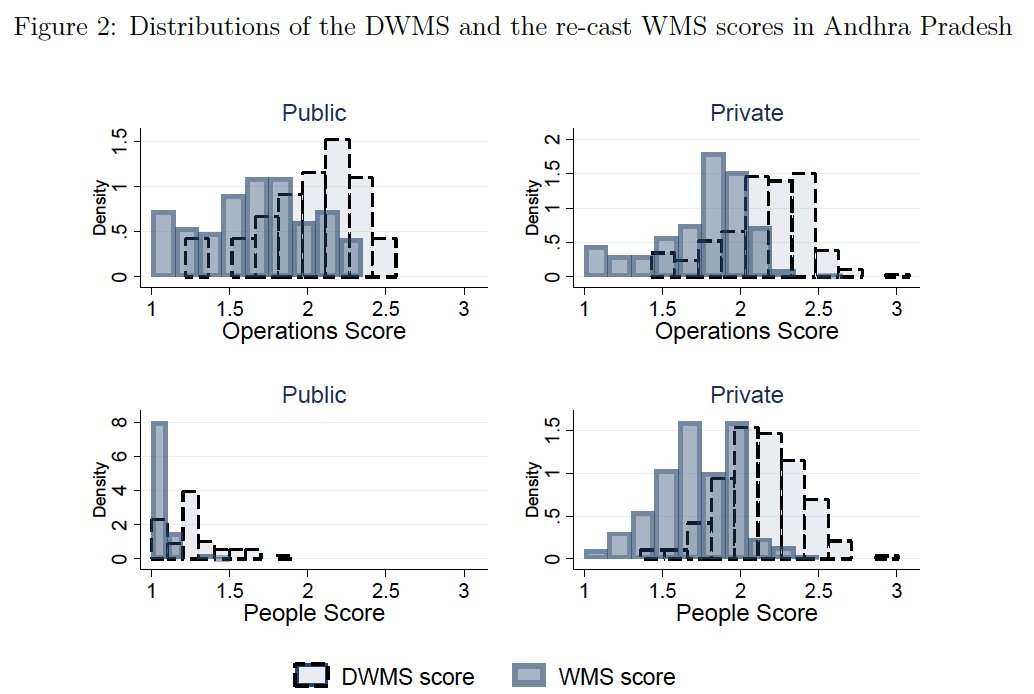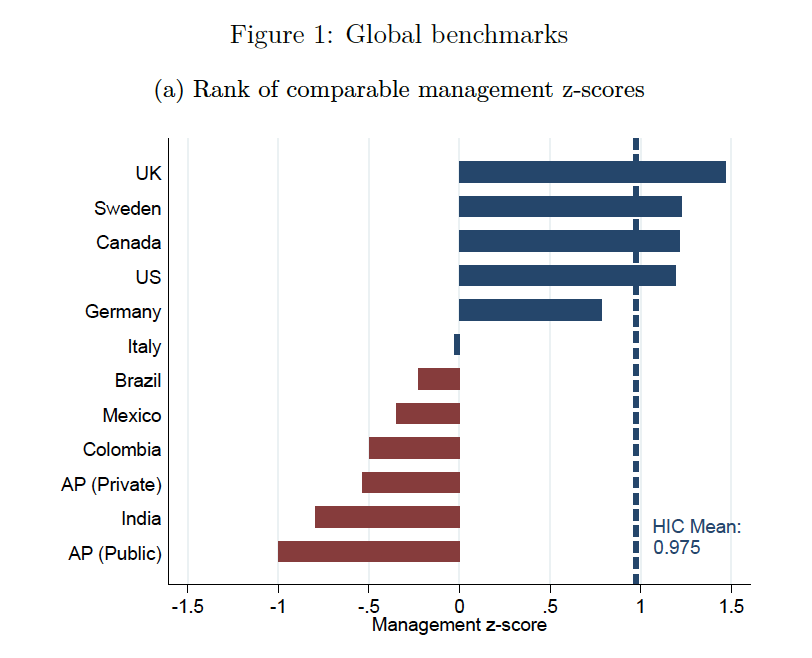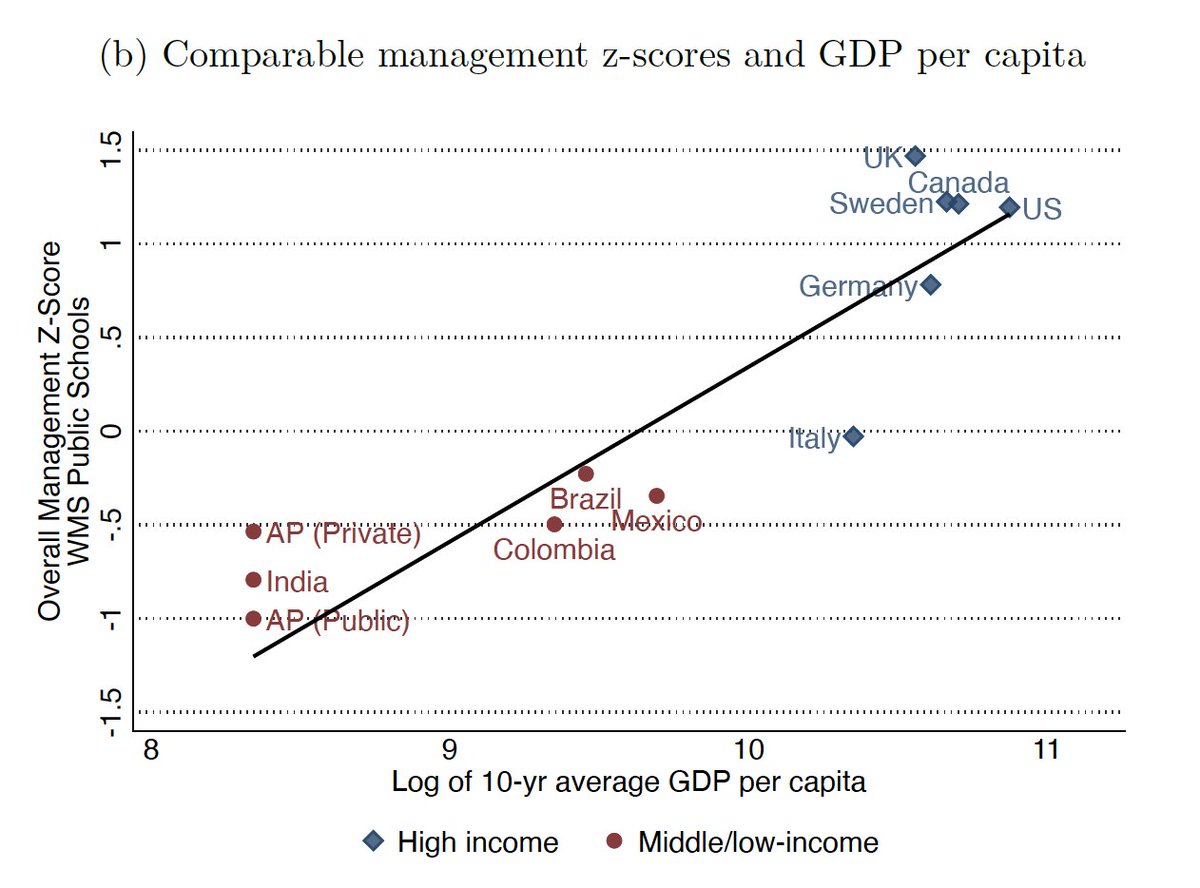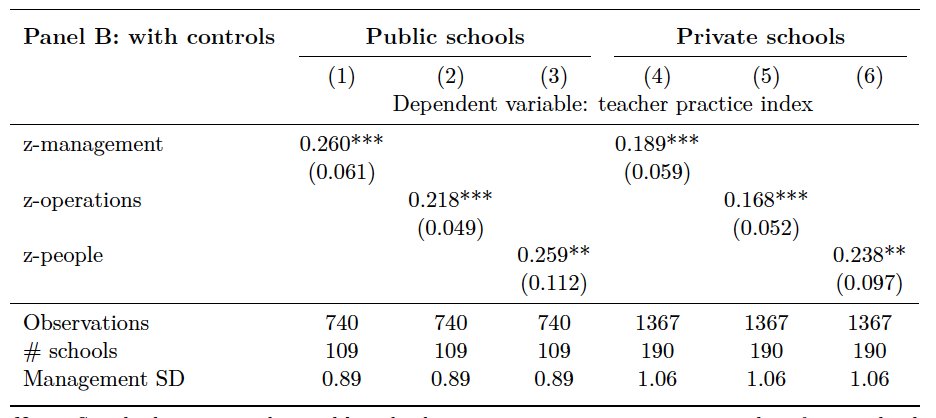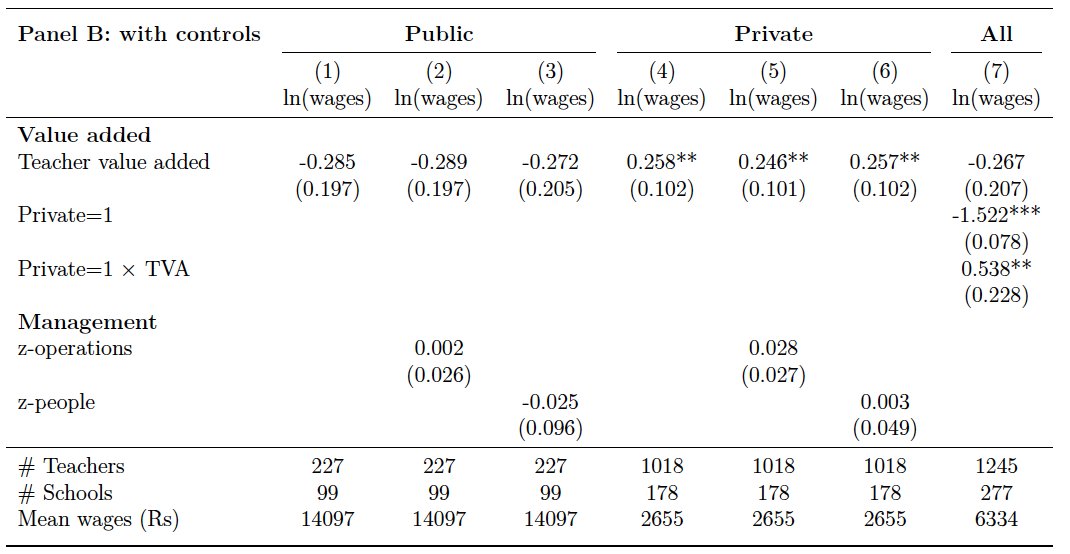In a new @nberpubs WP, with @renata__lemos & @danielascur, we show that the quality of school management (esp. people management) in Indian schools is strongly correlated with both teaching activity & school effectiveness at improving student learning: https://bit.ly/3sfuEI0 1/n
We design and use a new tool for measuring management in low-capacity settings (the Development World Management Survey or D-WMS) - which allows for comparability with the original Bloom & @johnvanreenen WMS, but with a lot more granularity - which matters in the left tail 2/n
Combining this D-WMS data on management quality with 4-years of panel data on schools, teachers, and students across private and public schools in the Indian state of Andhra Pradesh (used in this @QJEHarvard paper: https://bit.ly/3bx25Qq ), we document four main results: 3/n
1 (a). Overall, management quality is very poor in this setting, and especially in public schools: Management quality scores in AP public schools are ∼2σ below that of public schools in high-income countries with comparable data. 4/n
1(b) BUT, these low-scores are not an outlier relative to GDP/capita. Thus, the income gradient in school management quality across countries could partly explain the greater human capital production per year of schooling in richer countries (Schoellman 2011) 5/n
1(c) Of course, richer countries also have more education inputs including more educated parents, but the graph highlights that cross-country variation in effectiveness of human capital production likely reflect variation in both inputs and TFP (as shown below) 6/n
2) Private schools are significantly better managed, especially in people management, which is 4.8σ (!) higher than in public schools. Management scores for private schools in India are comparable to those in public schools in much richer countries 7/n
We find a strong correlation between better management (esp. people management), and independent measures of teaching practices, as well as student value added. The variation matters more in public schools (presumably because the base level of management quality is so low) 8/n
One independent test of stronger people management in private schools is that we find that more effective teachers are paid more in private schools (even after controlling for observables); we find no correlation between teacher pay and productivity in public schools 9/n
To wrap up: our data suggests that the quality of school management really matters for productivity. At the same time, improving public school management quality seems quite difficult as @singhabhi and I show in another recent paper (10/n): https://twitter.com/karthik_econ/status/1331150025880006656;
There is much work to be done in designing and testing ways to improve school management in developing countries. We recommend the use of the D-WMS surveys for such work to improve (a) precision, (b) power, and (c) comparability; freely available at: https://developingmanagement.org/ 11/11

 Read on Twitter
Read on Twitter
